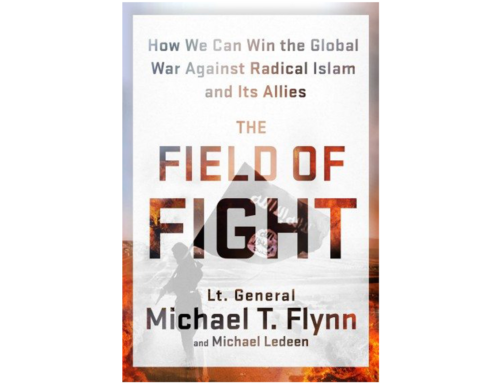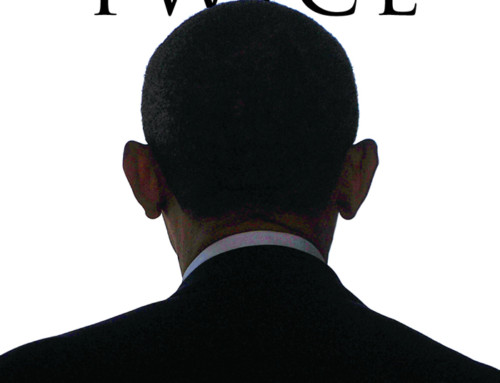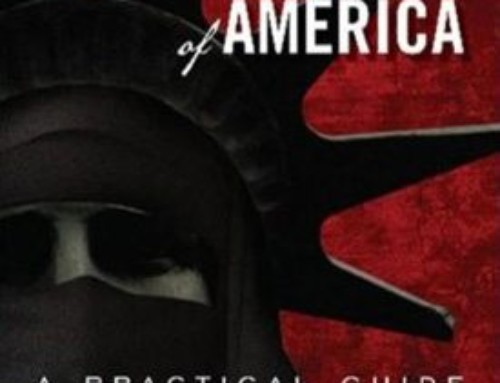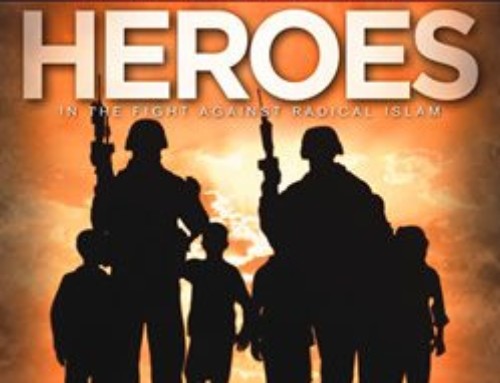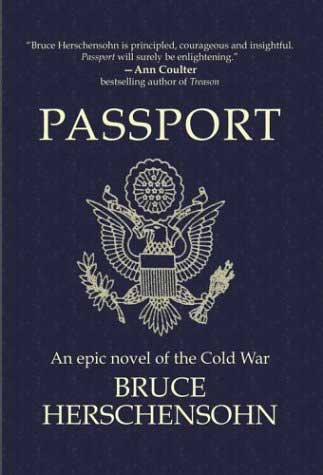 Can there be anything more sacred or more defining for a Kerry-voting liberal than the certain knowledge that our war in Viet Nam was evil? Yet in a remarkable twist of fate, the Kerry campaign continues to compel us to revisit the Viet Nam era. Therefore, Bruce Herschensohn’s Passport, the definitive novel of the Cold War, is an important read. Unfortunately for the body politic, most Kerry voters will not read this book. They will not want to see their own most fervent beliefs embodied in some of Herschensohn’s characters, those characters that despite being blessed with American birthrights, are the unwitting or the duplicitous pawns of past and present Communist regimes.
Can there be anything more sacred or more defining for a Kerry-voting liberal than the certain knowledge that our war in Viet Nam was evil? Yet in a remarkable twist of fate, the Kerry campaign continues to compel us to revisit the Viet Nam era. Therefore, Bruce Herschensohn’s Passport, the definitive novel of the Cold War, is an important read. Unfortunately for the body politic, most Kerry voters will not read this book. They will not want to see their own most fervent beliefs embodied in some of Herschensohn’s characters, those characters that despite being blessed with American birthrights, are the unwitting or the duplicitous pawns of past and present Communist regimes.
The book’s breadth allows the reader enough storyline to relive and more importantly to reevaluate the important events in the Cold War. While attacking much of the conventional wisdom regarding the period, he also invites a rethinking of how the lessons of this past war should impact today’s war with Islamic terrorists. Perhaps as starting point, even its name, cold war, needs to be rethought, given that American losses alone were 33,000 killed in Korea, 57,000 killed in Viet Nam.
Herschensohns background and credentials greatly inform his story. During the 37 year period covered in ‘the book, he traveled to over 90 counties in service of the U.S. government, serving as Director of Motion Pictures for the United States Information Agency (formerly headed by Edward R. Morrow), was Special Assistant to President Nixon, and a member of the Reagan transition team.
Passport is a compendium of very big ideas. It begins on October 8, 1960, at the U.S. embassy in Hong Kong where the reader is introduced to twelve Americans who have randomly come together to watch the first televised presidential debate between Kennedy and Nixon. There is the senior diplomat, Gerald Fairbanks, the Washington Socialite, Irene Goodpastor, the D.O.D. analyst, Moose Dunston, the Kennedy campaign staffer, Cody Cooper, the alluring mainland escapee and embassy employee, Tso Wai-Yee, the dashing Air Force Officer on leave, Jonas Valadovich, the junior diplomat, Ann Whitney, the already jaded young syndicated columnist, Ted Murphy, my favorite, the mysterious C.I.A. agent and raconteur, Adam Orr, and several others. For Herchensohn, the city of Hong Kong is a metaphor that represents not only the basic human longing to be free but something else little understood by liberal pundits, the utter fragility of freedom.
When the Nixon/Kennedy televised debate is over, the discussion among the n/ewly acquainted embassy guests moves from the impending election to 1997, when Britain will handover Hong Kong to the People’s Republic of China. Herchensohn?s characters agree to stay in touch and reconvene on the eve of the reunification 37 years later. Their stories and the epic of the Cold War begin with this device.
Many readers of Passport will find themselves reevaluating liberal Cold War nostrums. One of Herschensohn’s nostrum busters is the notion that Ronald Reagan?s quest to dispatch the Soviet Union to the dustbin of history was dangerous. Those who lived through the cold war remember that it was the American and international left that fervently held that it was wrong and reckless to antagonize the Soviets through bellicose rhetoric. Further, why try to defeat them because MAD (mutually assured destruction) was what made us safe?
Among the book’s many gripping passages are those that cover several times when the U.S. and the U.S.S.R. came close to nuclear war. The first of these is his account of President Kennedy’s inner circle during the days of October 16 through the 28th 1962 when his character Cody Cooper and the “ExCom’s” as Kennedy called his crisis team, took us right to the brink. I spoke to Herschensohn in his office in Southern California and told him that I thought that its new information for many readers to learn that there were already standing nuclear missiles in Cuba in the last days of the crisis. If hostilities had broken out, due to our naval blockade of Cuba, large areas around Cape Canaveral and Washington D.C. as well as most major cities in Russia could have been obliterated.
Herschensohn replied, “There were two other times that I know of when we (the U.S. government) were forced to threaten the nuclear option. One was the six-day war in ’67, covered in the book, and the other was the Yom Kippur war in ’73. Both times (one under a Democrat President the other under a Republican) we had to threaten the Soviets to keep them from coming in with the Arabs and destroying Israel.”
The book reminds us that during the cold war there were several thousand Soviet warheads targeted at our cities. With the danger of miscalculation during a crisis, a rational reader would likely conclude that the elimination of the Soviet Union, despite the admonitions from the left, was a preemptive regime change of biblical dimensions.
Another big idea and liberal nostrum exploded by Herschensohn is the notion that we in the free world should pay homage to the U.N., which is an international organization dominated by thuggish, anti-capitalist, totalitarian states that are overwhelmingly anti-American. Herchensohn’s protagonist, Ann Whitney, like a number of his characters, is a composite of real people. She first appears in the initial Hong Kong scene as a wide-eyed leftist. By the end of the story, she is a mature, conservative political commentator whose mission it is to convince the U.S. government to found a new international body composed of only countries that have freely elected leaders, the Nations of Liberty Alliance, (NOLA). This is also an original idea that Herschensohn has been trying to promote in power circles for about 20years he told me. I suspect that many of those who read his book will agree with his notion that, if such a body were constituted, the U.N. would disappear spontaneously out of sheer irrelevancy.
As it pertains to Kerry’s wish that we revisit Viet Nam, Herchensohn’s dedication reads”To those Americans who have lived the highest morality by risking their lives for the liberty of strangers. Condi Rice, President Bush’s National Security Advisor, has recently stated that, “Viet Nam was the Lodestar for the (the left’s) questioning of authority,” While Henry Kissinger, in his recent book, Ending the Vietnam War, was uncharacteristically a little less diplomatic, “Vietnam became a metaphor for national political self-hate, the supreme badge of the great liberal death wish.”
John Kerry, who wants to be the free world’s Commander-in-Chief in wartime, is a man who, in sworn Senate testimony, launched his political career by accusing his comrades in arms of war crimes. Today?s anti-war, left-leaning mainstream media is in full campaign mode and, for example, will try to avoid the true story of a man named Paul Galanti, an American P.O. W. in Hanoi in 1971, who first heard John Kerry?s Senate Testimony when it was piped into his cell by his North Vietnamese captors. Passport provides us an important but also engaging saga as a vehicle to remember those important events the partisan media failed to report thirty years ago.
In speaking to Herschensohn, he reminded me, “You know it’s as if we have amnesia about what happened. If we (the U.S.) were the enemy occupiers, how is that they fought on for over two years!? We took our troops out in January of 1973 and the country did not surrender until April of 1975 after the Congress cut off all their funds.
“Do you consider the Viet Nam War just war?” I asked.
“We were fighting for the liberty of strangers. Because our survival was in no way threatened, (Viet Nam) was the most moral war we ever fought. There were more lives lost in the “peace” after South Vietnam’s surrender than during the war. Far more.”
One of his story’s heroes is the Kennedy Administration staffer Cody Cooper who leaves Washington after the JFK assassination and resurfaces in the story as the head of a relief agency for South East Asian refugees. With this character, Herschensohn reminds the reader that it was a tiny unnoticed minority of Americans in the mid 1970’s who honored our commitment to free South Viet Nam. Despite what John Kerry and all the anti-war media and pundits predicted thirty years ago, the Fall of South Viet Nam did precipitate a blood bath. Nearly a third of the population of Cambodia was killed by the communist-backed Khmer Rouge. Nearly a million South Vietnamese attempted to escape their country and as many as 200,000 lost their lives, mostly on the open seas but also in summary executions.
In talking to Herschensohn about his book, I particularly wanted to know what he thought were the most important lessons of the cold war as it relates to the successful prosecution of this war against Islamic terror. Or, what cold-war baggage should we be carrying with us now that a significant portion of Islam is bent on killing us?
Herschensohn: It was President Carter’s abandonment of the Shah that paved the way for the first Islamic fundamentalist state, with terror as its backbone. And it’s this virulent anti-western form of Islam that?s now swept across the region. The Shah allowed the U.S. to install listening equipment in Iran near the southern border of the Soviet Union. The reader will recall that this was at a time in the 70?s when satellite technology was not able to read license plates from space and when we needed the Shah?s help. And maybe it is the Carter corollary that is the reason why Bush is sticking with Saudi?s while many feel they don’t deserve to be our allies.
Another memorable segment in the book takes place inside the Nixon White House where the Nixon aid and Herschensohn persona, Moose Dunston, attempts to counsel a beleaguered President Nixon during the very hot war being fought in the jungles of South East Asia and on the streets of American cities.
Herschensohn told me, “During the Johnson Administration, we allowed privileged sanctuaries. Once the VC got into Cambodia they knew that they were safe. Then in the 70’s, President Nixon decided we needed to bomb over there and of course, all hell broke loose. We are now allowing privileged sanctuaries in Syria, Lebanon, Iran, and other places within the Mideast.
Herschensohn confided that much of the dialogue between Nixon and Moose are quite close approximations of those between himself and his President.
One of Herchensohn’s main characters is communist sycophant, Ted Murphy. Based on a tip from a KGB agent, in a nationwide televised newscast, Murphy exposes the name of Adam Orr, as a known CIA operative working out of Southeast Asia. At this moment in the story, the reader knows not only that Orr is somewhere north of the 17th parallel trying to free his friend, Jonas Valadovich, from his P.O.W. prison in North Viet Nam. The reader also knows that Orr left some envelopes with the U.S. ambassador to South Viet Nam, one of which was his will. Herschensohn minimalist passage makes powerful reading, two nights after Ted Murphy?s announcement; Adam Orr’s body was left at the front gate of the U.S. Embassy in Saigon. Traffic went by in the usual roar of a Saigon morning. Hondas making their loud noises were being driven by slim women in white aodais who barely turned their eyes toward what remained of him.
I asked Herschensohn to recount his memory of the Church Committee meetings conducted in Congress during this period. He told me,?They (the committee) coerced CIA agents to testify by allowing them to wave the agency’s contract agreement (which forbade agents from ever divulging secrets). Many of them retired or quit rather than testify. Those that testified revealed thousands of names, many of whom were foreign agents, citizens of other countries, loyal to the West. And this caused many of them to be assassinated. Later, under Carter (and the left-wing dominated Congress) added to the death of the CIA with the sanctioned birth of the First Islamic Fundamentalist government. Put these two together and something like 9/11 was inevitable.
After the Communists consolidated their death grip on Viet Nam, Laos, and Cambodia, Passport tells the story of how our left-dominated congress and a partisan press tried to destroy a popular President for the crime of attempting to stop the Soviets from creating satellites throughout Latin America.
Herschensohn told me, “Just as the 94th Congress orchestrated the surrender in Viet Nam by saying that the war in Viet Nam was separate from our struggle against Communism, the left has been employing the same tactic, saying today that the war in Iraq is not about the war on terror. Anyone who becomes president next is going to face tremendous dissent. If another preemptive action is needed, Syria, Lebanon, Iran, North Korea? A president must say to himself, I can lose office, but I must do this! But that takes a very big man.”
Herschensohn, in his epic, Passport, through artistry and symbolism, he dispels core liberal dogmas. The reader is made to understand that we narrowly escaped a nuclear exchange in ?62. By so doing, he defeats the notion that Viet Nam was an evil war. Rather it was a beachhead, established by one of the foremost Icons of the left, John F. Kennedy.; it was an important theater in the ultimate defeat of an enemy empire that meant to destroy us. And it was a theater surrendered by the American left.
Readers will enjoy the reverence with which Herschensohn treats President Kennedy. The book revisits that cold Washington day, on January 20th, 1961 when our youngest president bravely told the Soviet Union and the listening world: “Let every nation know, whether it wishes us well or ill, that we will pay any price, bear any burden, meet any hardship, support any friend, and oppose any foe, to assure the survival and the success of liberty.”
Yet the honest reader of Passport will have to conclude that we will only continue to make good on Kennedy’s pledge if the left in this country remains a minority.
